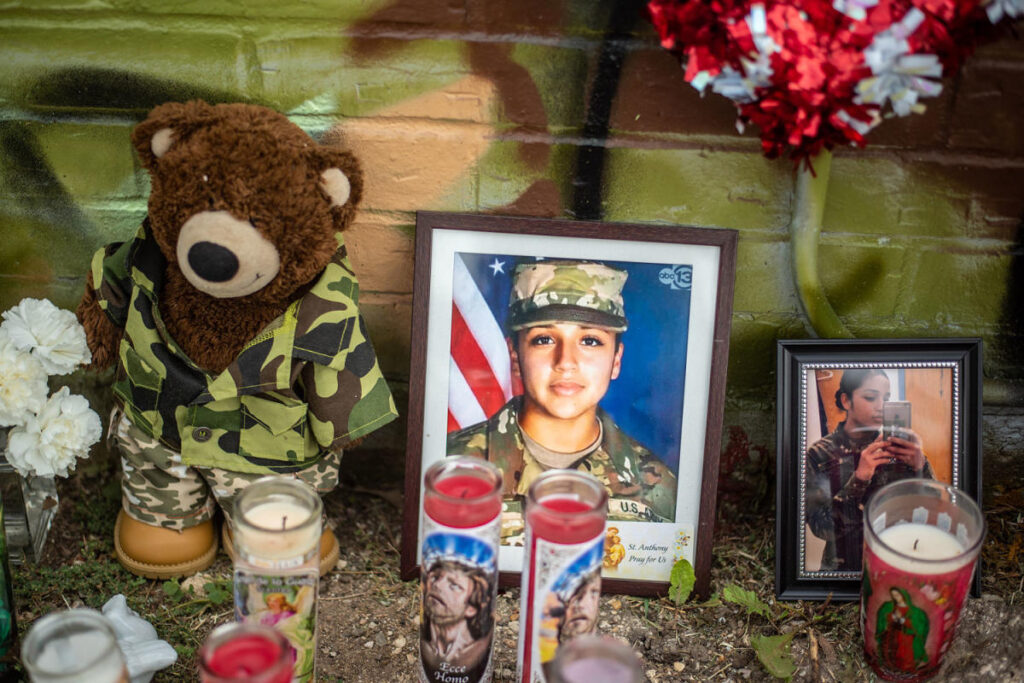The reported racist comments made by former President Donald Trump regarding Vanessa Guillén, a soldier who was brutally murdered in 2020, have ignited backlash from various Hispanic communities. As per The Atlantic, during a meeting in December 2020, Trump allegedly expressed disdain for the financial burden of Guillén’s funeral costs, stating, “It doesn’t cost 60,000 bucks to bury a f—ing Mexican!” following discussions about covering her funeral expenses. This comment, if accurate, highlights a troubling trend of disrespect toward Latinos that critics have pointed to in Trump’s history. While NBC News has not confirmed the report, both Trump and his spokesperson have denied making such a statement. In contrast, Guillén’s sister, Mayra Guillén, defended Trump on social media, criticizing those who exploit her sister’s death for political gain while expressing her appreciation for the former president’s support for her family.
The Guillén family attorney, Natalie Khawam, also mentioned that they did not receive any financial assistance from Trump, although some funeral costs were covered by the Army and donations. In response to the controversies surrounding the comments, Trump’s campaign emphasized his administration’s commitment to military personnel, pointing to pay raises and reforms for veterans as evidence of his support for the military community. Vanessa Guillén’s tragic death, which highlighted the military’s handling of sexual assault and harassment claims, led to public protests and ultimately contributed to the passage of the I Am Vanessa Guillén Act in 2021. This legislation aimed to reform military procedures regarding sexual harassment and abuse accusations and reflects a pivotal shift in how such complaints are addressed.
The political ramifications of Trump’s alleged remarks are compounded by the divisions within the Latino community regarding support for him. Notably, a recent polls indicate that about 40% of Hispanic voters support Trump while 54% back Vice President Kamala Harris. This division raises questions about the long-term impact of Trump’s comments and how they might be interpreted by different segments of the Latino population. Some, including Republican figures like Artemio Muniz of the Federation of Hispanic Republicans, argue that Trump’s defense of the Guillén family contrasts with perceived indifference from the military establishment, possibly preserving support among conservative Hispanic voters who may downplay the significance of such remarks.
Critics from the Latino community have expressed outrage over the reported comments, correlating them with a long-standing pattern of racism against Mexican Americans and other Latino service members. Former LULAC president Domingo Garcia denounced the alleged remarks as one of the most egregious attacks on their community and military personnel in contemporary history. LULAC, which plays a significant role in advocating for civil rights among Latinos, has historical roots in confronting discrimination faced by Mexican Americans despite their service in the military. The organization and others, such as the American GI Forum, were founded in response to the systemic injustices that veterans and civilians alike experienced, demonstrating that the fight against discrimination has deep historical significance.
Despite the public outrage, Biden administration allies have predominantly refrained from focusing directly on Trump’s specific comments, emphasizing instead the broader context of Guillén’s life and legacy. Representative Sylvia Garcia, among others, highlighted Guillén’s dedication to her family, community, and country, steering the conversation toward the societal changes her death sparked regarding treatment and support for service members facing harassment and abuse. This approach underscores a desire to honor Vanessa Guillén’s memory rather than descend into a politically charged battle over Trump’s rhetoric.
As we examine the ongoing fallout from Trump’s comments and the overall political landscape, one can observe that issues of racial and ethnic inequality continue to resonate among Latino communities. Some younger Latinos may view past discrimination as a bygone issue, leading them to reject narratives that propose a victim mindset. The legacy of Mexican American veterans during World War II, for example, may not resonate with those unfamiliar with their historical struggles for recognition and dignity in American society. Encounters with contemporary figures, leaders, and events shape the narrative around how Latinos engage with their history and the political implications tied to it. Vanessa Guillén’s tragic story serves as a locus for activism, underscoring the need for continued advocacy against racism and for respect within military culture, an essential fight that echoes through generations of Latino service members and civilians alike.

